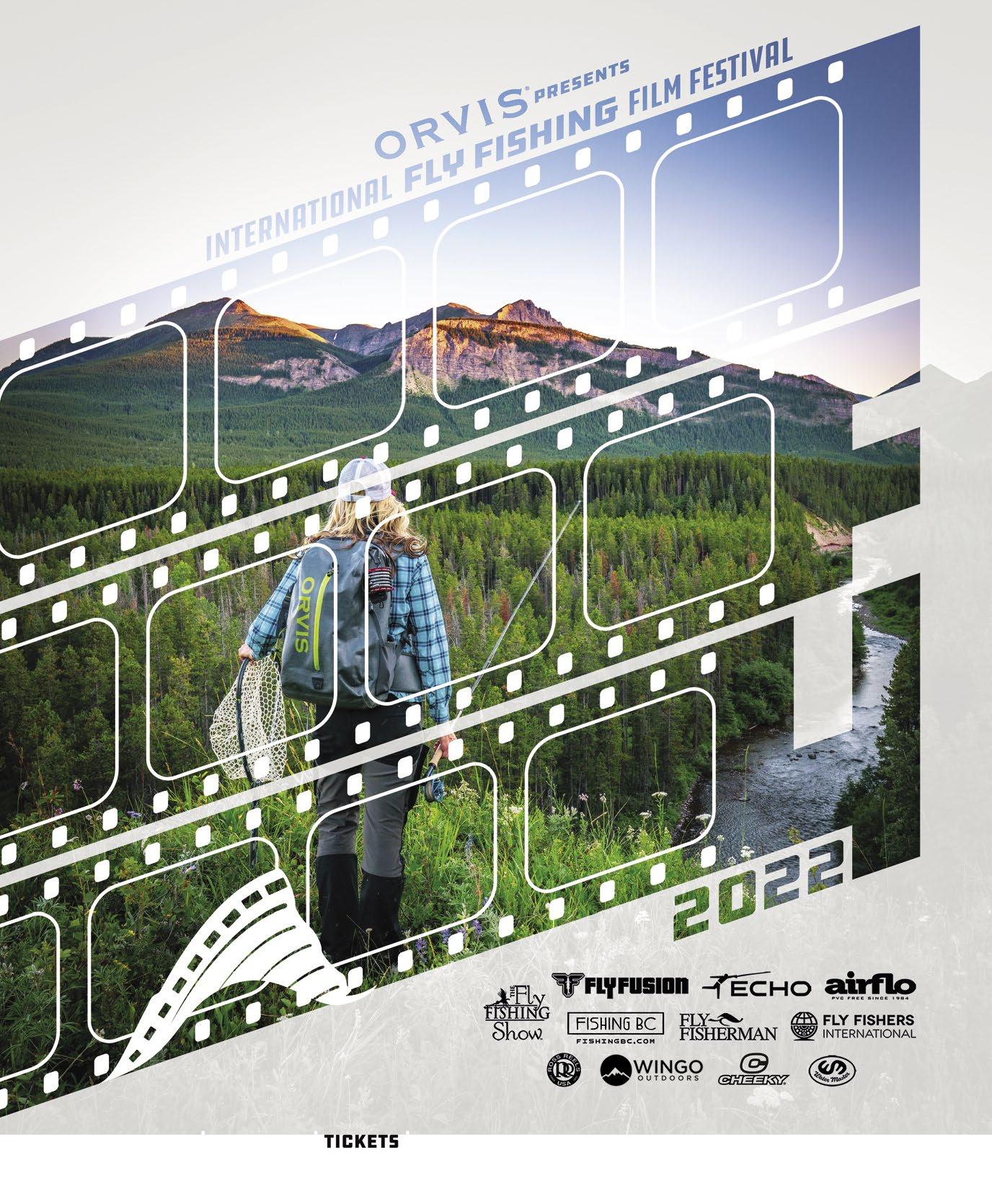
7 minute read
Angler Profile | Becca Sue Klein
For the better part of two decades, Becca Sue Klein has worked in the Waterkeeper movement. Whether in a boardroom or a social setting, she has rubbed shoulders with executives and officials, advocating for environments on behalf of the public who loved and used the resource, including anglers. But although her father was a fisherman, Becca had no real knowledge of the angling community until 2014, when The Orvis Company’s Down The Hatch Film Festival selected Chattahoochee Riverkeeper as its beneficiary organization. “That was my entrée into the fly fishing community,” she said.
Likewise, even though her career’s work helped protect different watersheds, Becca’s personal connection with the river she helped protect was limited.
“I had no desire to be outdoors. To be honest, I was the girl who wore the three inch stilettos and carried the Louis Vuitton purse.”
In 2015 Becca was diagnosed with breast cancer. After a double mastectomy and a clean bill of health from her oncologist, Becca started to find herself lost. Her drinking was becoming a problem, and she was coping with her earlystage cancer diagnosis by reverting back to old, unhealthy habits. After she had a rock-bottom night, she decided enough was enough.
At the same time that her life was spiraling, by being introduced to the river she lived near, and worked for, Becca glimpsed what life might be like if she slowed things down. Through her collaboration with the film festival, she got the opportunity to pick up a fly rod. Saying yes to fly fishing was the second-best decision she ever made. Three days later, she made her best: to move forward in a life without alcohol and drugs.

Bob Covey: For some, fly fishing goes hand in hand with beers in the boat or whisky around the campfire. How does Reeling in Recovery perform its work in a culture that can oftentimes seem like it’s synonymous with alcohol?
Becca Sue Klein: Since we started to promote Reeling in Recovery, we heard from people going to our website and filling out forms, talking about exactly that—the fact that there is always beer, always whiskey. It does make some uncomfortable. The Reeling in Recovery concept was to help the industry become inclusive of all people who love their local river or cove or whatever body of water you fish on. Fly fishing is about stepping in the water with a fly rod in hand. We wanted to be sort of like the Wharf Rats were to the Grateful Dead. The Wharf Rats created a safe place for Deadheads to make the decision to not drink or do drugs, but still listen to music and participate in the culture. With Reeling in Recovery, in the same way, we have the opportunity to make our industry a little more inclusive.
BC: In the context of that party lifestyle you were used to leading, where the fast pace and being spontaneous and fun and up for anything is lionized, what has your fly fishing journey and your recovery journey taught you about the importance of slowing down?
BSK: My 12-step recovery has a motto: “one day at a time.” I never really grasped that concept until I started working in the program, until I got my advanced cancer diagnosis, and until the fly rod. Fly fishing helped me learn that because I would have to slow down my breath. I would have to approach the water in a certain way. It taught me the practice of pause. In active alcoholism, I was always the first to react. I didn’t respond, I reacted. The concept of slowing down allows me to think before I speak, to have stronger relationships with people in my life. It allows me to pay it forward. That is a huge part of my recovery and my journey through both cancer and addiction. I might be having the worst day. I might be so in my head and upset. But if I reach out to somebody else, a lot of time that fulfills me, because I am helping someone else. So just being involved in the fly fishing community has been a huge blessing to me.

BC: How has quitting drinking and working a 12 Step Recovery program allowed you to approach and accept your cancer diagnosis?
BSK: It laid the foundation for me. If I hadn’t worked in that program and decided to live my own truth, if I hadn’t picked up a fly rod and worked the program and had five years of sobriety under my belt, I don’t think I would have survived this cancer diagnosis. Quitting drinking and working a 12 Step Recovery program has allowed me to handle the cancer diagnosis with much more grace than I would have otherwise.
BC: You’ve had the experience of helping other people who are in recovery make that connection to nature, of showing them that they’re capable of patience and strength and learning something new. What’s it like to witness that transformation first hand?
BSK: It’s life changing. We’ve had people comment that their feelings of guilt and shame from their active alcoholism just sort of washing away in the river for that day. One woman was able to see that she could do something spiritual and heartfelt and which required focus. She could put the energy she used to give to her drinking into fly fishing. That’s the impact that a program like Reeling in Recovery can have in the community.

BC: What would you tell someone who might be surfing their own line of dangerous decisionmaking and covering up feelings of despair with alcohol, who be in a might precarious place but perhaps afraid to admit it?
BSK: I say to anyone who thinks they might have a problem or wakes up the next morning and asks themselves ‘is this worth it?’ to try sobriety. Try it. We only have 24 hours in a day. You never know unless you try. As someone who is living with a stage four cancer diagnosis, I don’t have the option to not have this disease, but I do have the option to not pick up a drink today.
BC: Our experiences make us who we are. What would you tell an 18-year-old Becca Sue Klein if you met her today knowing she had the world by the tail?
BSK: Initially when I got my stage four diagnosis I thought ‘oh my gosh, I wasted all this time drinking and partying when I could have been doing X, Y or Z.’ But we can’t regret the past nor wish to shut the door on it. That’s what they say in my 12-step program. And so I’d tell that 18-year-old to be safe, to be smart, but to go live her life and remember that everything she goes through, there is a lesson in it all. And that’s a blessing. What else are our experiences? They are growth opportunities.
To learn more about Reeling in Recovery, please visit reelinginrecovery.org















